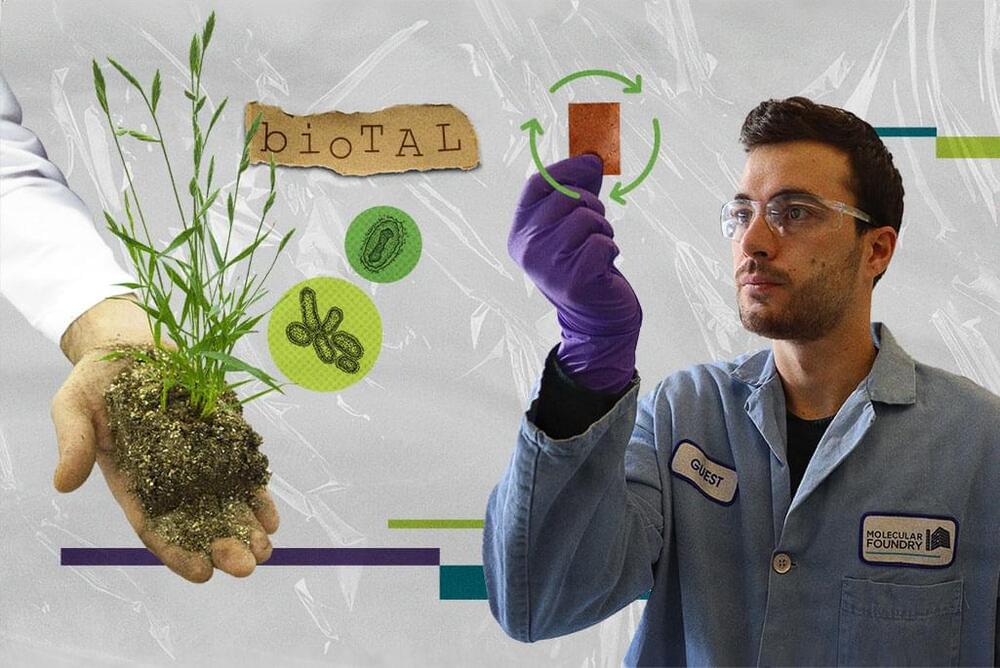Plastic waste is a problem. Most plastics can’t be recycled, and many use finite, polluting petrochemicals as the basic ingredients. But that’s changing. In a study published today in Nature Sustainability, researchers successfully engineered microbes to make biological alternatives for the starting ingredients in an infinitely recyclable plastic known as poly(diketoenamine), or PDK.
The finding comes from collaboration among experts at three facilities at the Department of Energy’s Lawrence Berkeley National Laboratory (Berkeley Lab): the Molecular Foundry, the Joint BioEnergy Institute (JBEI), and the Advanced Light Source.
“This is the first time that bioproducts have been integrated to make a PDK that is predominantly bio-based,” said Brett Helms, staff scientist at the Molecular Foundry who led the project. “And it’s the first time that you see a bio-advantage over using petrochemicals, both with respect to the material’s properties and the cost of producing it at scale.”
